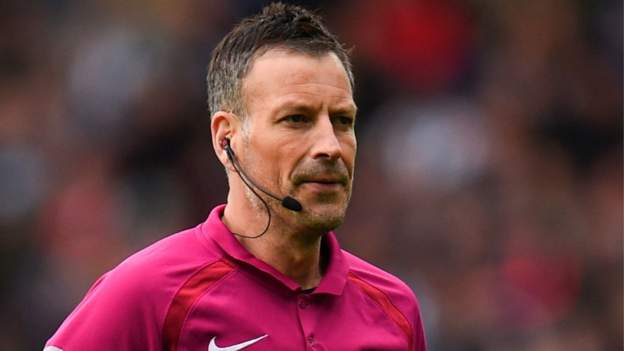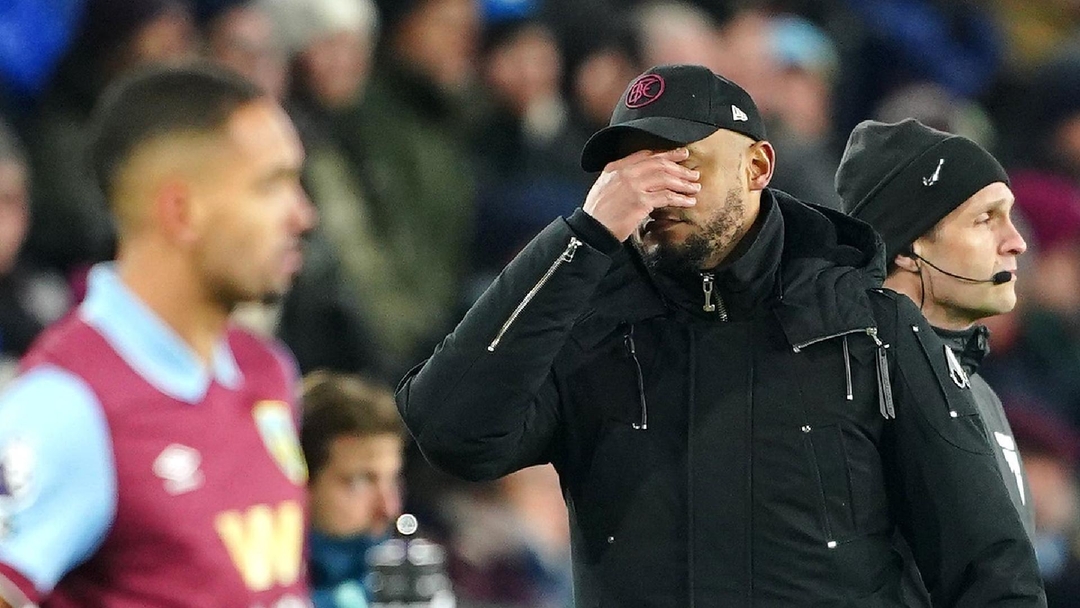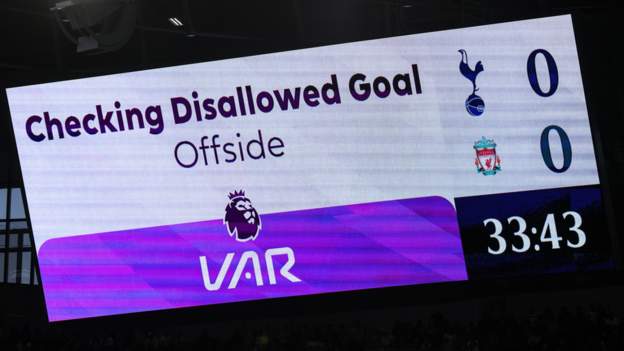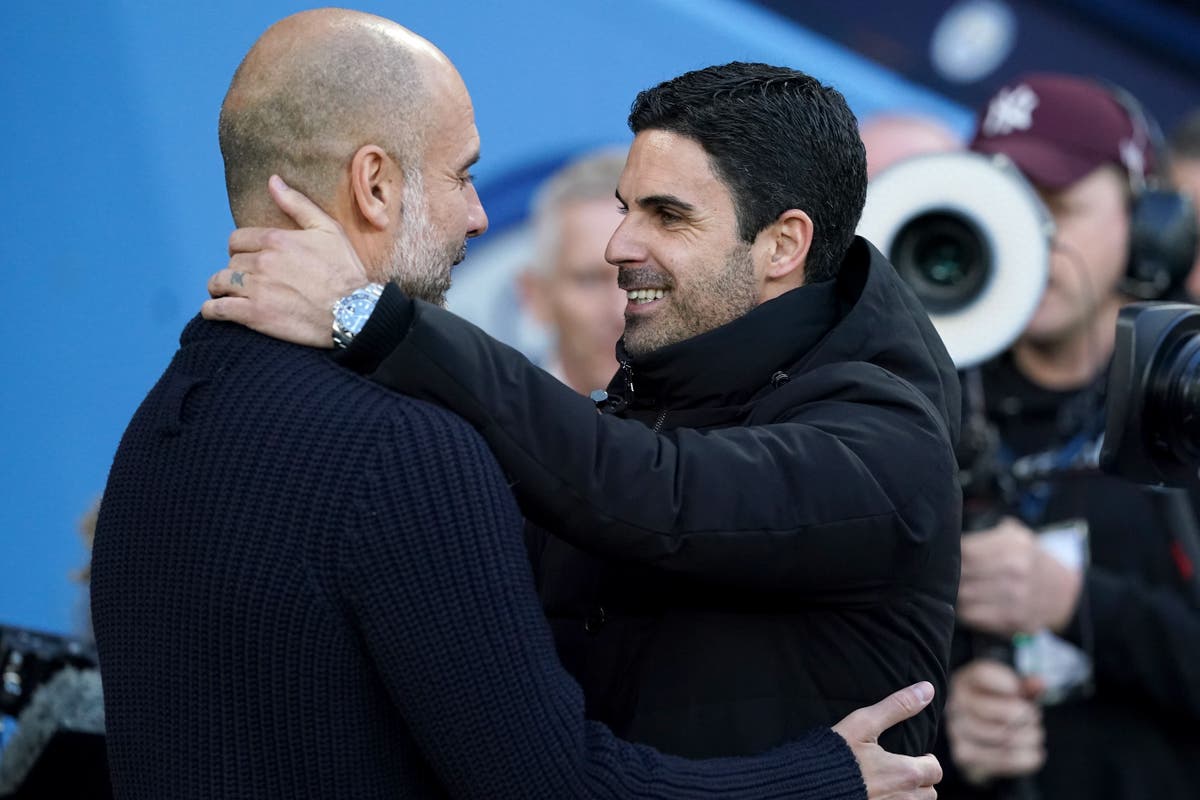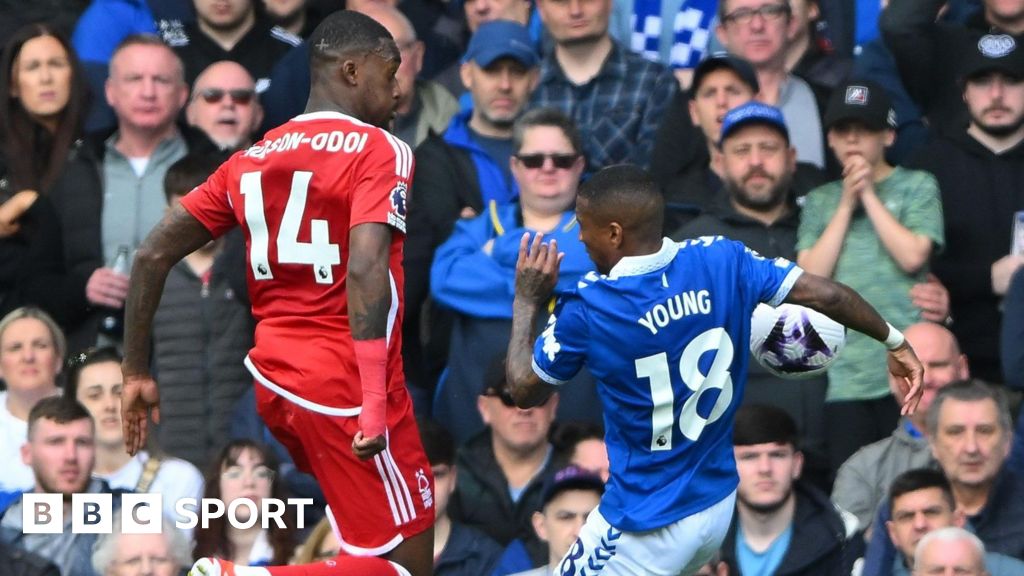What is VAR, how does it work and what are the biggest problems?
Wolves manager Gary O’Neil proclaimed: “What is the point in VAR?” His side felt aggrieved after yet more decisions proved vital in defeat at Fulham. Newcastle boss Eddie Howe labelled a penalty against his own club in stoppage time against Paris Saint-Germain “a poor decision” which “looks completely different” in a slowed-down replay to officials watching on monitors.
The current situations come after an increase in the use of technology in football over the past few years but none seems to create as much heated debate and questioning as that of the Video Assistant Referee (VAR).
By and large, it is felt that minor and visible calls are improved across the course of the season with on-pitch referees getting extra help. However, there have been several high-profile incidents of late that have led to clubs, or personnel within them, complaining about the eventual decision or decision-making process, with another recent one coming in the Champions League.
Manchester United boss Erik ten Hag felt aggrieved that a number of calls went against them in their 4-3 defeat to FC Copenhagen, including a decision to send off Marcus Rashford for serious foul play.
But the other side of the debate is that - without their being absolute, specific lines on what is and isn’t a foul, where a decision should or shouldn’t be made and so on - the bar for where VAR intervenes and decides on disallowing inicidents (or not) appears far higher in the Premier League than in European competition.
It is widely felt on these shores that the penalty against Newcastle for PSG would not have been given in England, nor would Jarrell Quansah’s late goal for Liverpool against Toulouse have been chalked off for a handball against Alexis Mac Allister much earlier in build-up play. But neither of these instances occurred in the Premier League, and referees in Europe - under the Uefa banner - have different takes and different levels of interventions.
Here’s everything on VAR you need to know, including the latest causes for complaint against it.
What has gone wrong?
A lot, Newcastle felt aggrieved that a penalty was awarded for handball after a VAR review having not been given during open play, in the final minute of injury time in their 1-1 draw at PSG.
Earlier in the competition, Man United complained about Rashford’s red card, given out for stepping across and onto the foot and shin of an opponent. Ten Hag insisted his side had seen three “very debatable” penalties go against them in four games and called his forward’s sending off “very harsh”.
In domestic football, Arsenal manager Mikel Arteta complained over “unacceptable” errors from on-pitch and VAR officials as his team lost to Newcastle, while Wolves boss O’Neil continues to feel unfairly treated by the use of the technology.
Earlier in the season he labelled a penalty decision given against his team and upheld by VAR as “scandalous” - also against Newcastle. VAR sent referee Michael Salisbury to the screen to award a penalty after Joao Gomes brought Harry Wilson down in the box, and Willian scored his second spot kick of the game to seal all three points for Fulham. O’Neil highlighted the decisions involving the late penalty, Carlos Vinicius’ alleged headbutt on Max Kilman and why Tim Ream did not receive a second yellow for a foul on Hwang Hee-Chan, while the Whites’ first penalty, awarded for a foul by Nelson Semedo on Tom Cairney, was also contentious. To note, VAR would never have intervened on Ream, as they only get involved for direct red card offences, not second yellows.
Ange Postecoglou suggested recently that clubs have to shoulder part of the blame for long stoppages for VAR, saying: “Some of it is self inflicted because if we come out every week complaining about decisions that is what will happen, every decision gets forensically checked and we will be sitting around for a long time in every game trying to figure out what is going on.”
However, it must be noted that the vast majority of these are subjective opinions and where Arteta sees fault, another manager, supporter or, indeed, official may see justification in decision.
One incident which was not subjective, but instead a quite clear mistake, came with Luis Diaz’s goal for Liverpool against Tottenham being ruled out for offside and then allowed to stay disallowed, despite the VAR officials running their processes and showing the forward was onside. The “significant human error” came as a result of the official, Darren England, appearing to forget that offside rather than a goal had been awarded in the first place.
To another extreme, Millie Bright criticised the fact there was no VAR in the first edition of the Women’s Nations League, after a clearly offside goal was allowed to stand against England which would have been simple to rule out.
Further clear VAR errors which PGMOL have had to apologise for include no penalty being awarded to Wolves against Man United after Andre Onana clattered Sasa Kalajdzic, a Brentford goal against Arsenal not being checked properly with no offside lines drawn and a West Ham late equaliser being ruled out for a foul, where none was apparent.
What has gone right?
In truth, a lot.
It’s overlooked when three or four calls are spot-on, when one causes serious complaint or at least is a subjective call which a majority seem to disagree with.
As an example, in the incident-packed Tottenham vs Chelsea fixture, several goals were correctly ruled out for offside through use - or checking - of VAR and the penalty awarded which saw Cristian Romero sent off was also a result of VAR intervention.
Generally speaking, these calls that are widely accepted as correct do not get highlighted, partially because the technology exists for that very reason: it’s expected to help officials make the right calls with a second look.
That doesn’t mean they don’t occur, though. The Premier League reported that 82 per cent of decisions were correct in the season before VAR was introduced, rising to 94 per cent being correct in 2019/20.
What is the process for VAR checks?
From the Premier League website: VAR will be used only for “clear and obvious errors” or “serious missed incidents” in four match-changing situations: goals; penalty decisions; direct red-card incidents; and mistaken identity.
When any of those match situations occur or potentially occur, VAR is constantly rewatching and monitoring match footage from the hub at Stockley Park.
If there is a decision to be made, the VAR or Assistant VAR (AVAR) will relay to the referee that play should be halted while checks are made, before recommending either an overturn, a pitchside check of the monitor for the ref or a continuation of play with the on-pitch original decision.
The video officials have until the ball goes dead to inform the referee that a check is underway if play is already ongoing.
The referee can then either check the monitor or accept the VAR recommendation. Upon reviewing the pitchside monitor, they may then stick with their own initial assessment or overturn the original, before communicating their new decision to the crowd.
What have PGMOL said?
The refereeing chief of Professional Game Match Officials Limited, Howard Webb, took over the role last year to improve the standard of officiating in the English game and to help oversee a smoother use of technology.
PGMOL confirmed to the League Managers’ Association “they are actively looking at how best to incorporate VARs into match-day refereeing teams, to ensure the dynamic between on-field referee and VAR is conducive to producing positive outcomes.”
After the Diaz incident, the organisation “acknowledge[d] a significant human error occurred” and brought in additional processes to ensure no repeat happened. They also released the audio of that incident, an “unusual step” according to Webb, “to show everybody what was very quickly pretty apparent to us, a human error and loss of concentration.”
VAR continues to be a hot topic in the Premier League week after week, leading to the PGMOL coming under increasing pressure while Uefa’s officials have also been criticised for their handling

www.independent.co.uk
